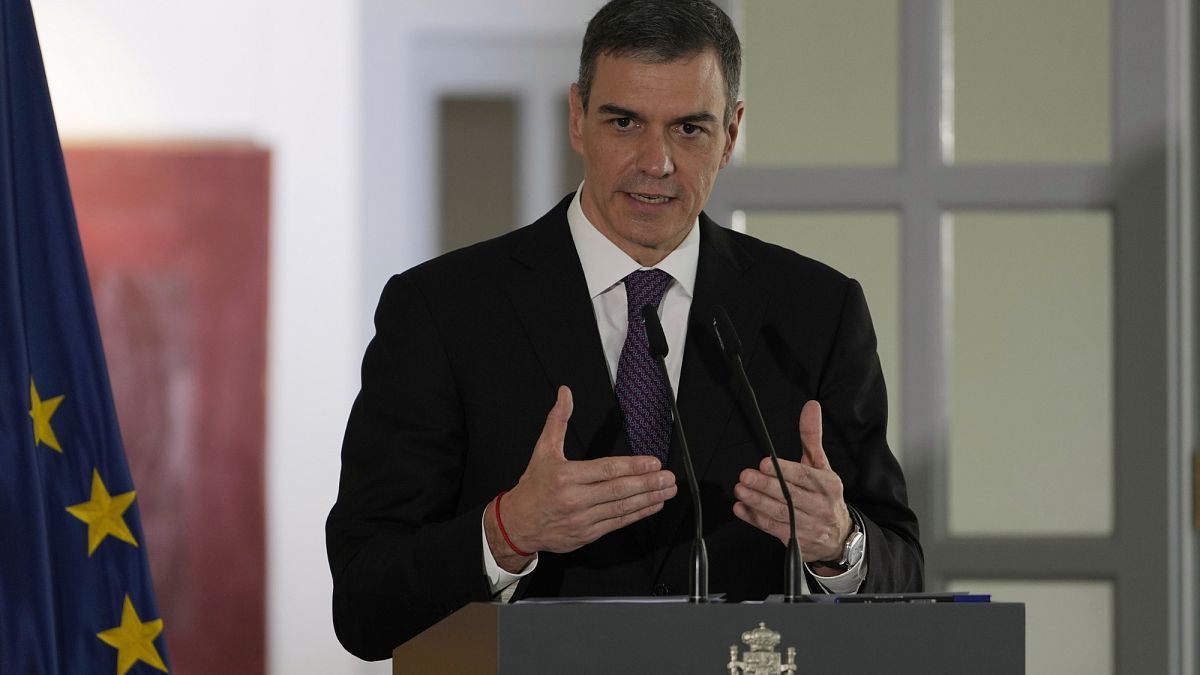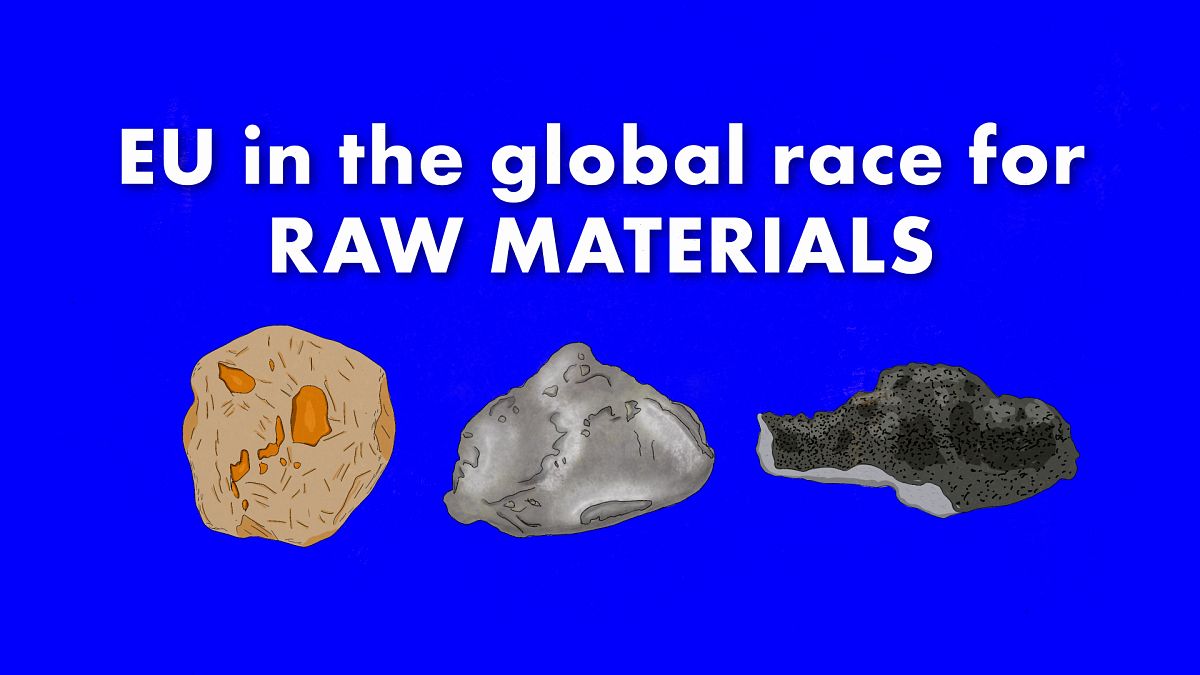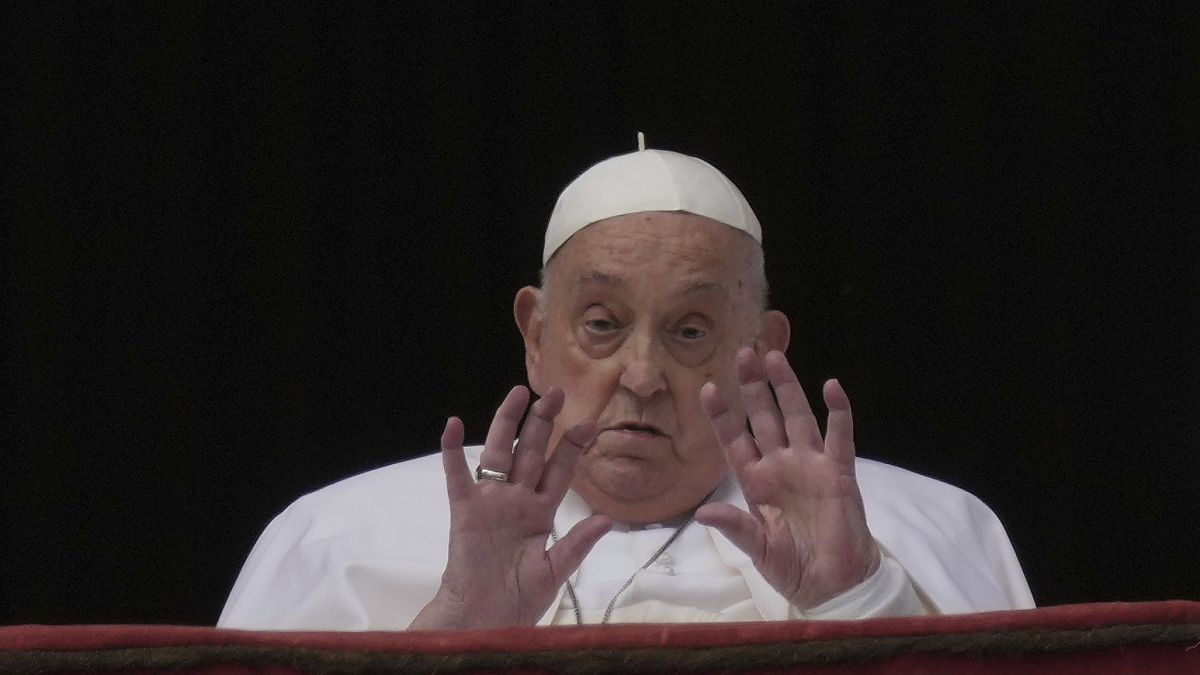The European Union will not decouple from the Chinese economy as a condition for reaching a trade deal with Donald Trump's administration, the European Commission said on Tuesday amid reports that the White House has asked countries to do exactly that.
Although the US has not officially confirmed the demand, Trump has sounded amenable to making nations choose between Washington and Beijing in order to win permanent concessions from his sweeping tariffs, which have shocked allies and adversaries alike.
"Maybe in a certain way," Trump told Fox News when asked whether Latin America should decouple from China. "Maybe, yeah, maybe they should do that."
The mere suggestion was enough for Beijing to issue a pointed warning of retaliation.
"China firmly opposes any party reaching a deal at the expense of China's interests," the country's Ministry of Commerce said on Monday.
"If this happens, China will never accept it and will resolutely take countermeasures in a reciprocal manner. China is determined and capable of safeguarding its own rights and interests. No one can remain immune to the impact of unilateralism and protectionism."
On Tuesday, the European Commission, which has exclusive competence to negotiate the trade policy of the 27-member bloc, sought to distance itself from the spat, insisting that talks with the US and relations with China are "two distinct matters".
"We have ongoing trade negotiations with our US counterparts," said Arianna Podestà, the Commission's deputy spokesperson.
"It's a negotiation between two parties and the two parties are discussing what are the elements where a win-win outcome can be reached," she added.
"This is distinct from our relation with China."
Podestà stressed that, despite the latest developments, the bloc's policy on China remained "the same", based on "de-risking, not decoupling".
However, when asked whether China was "off the table" in negotiations with the US, Podestà said the only red line was the "safety and well-being" of EU citizens, a reference to the food safety standards that the White House has labelled as a "non-tariff barrier".
"The rest is all to be discussed," she said.
"De-risking" is the name given to the strategy pioneered by European Commission President Ursula von der Leyen during her first mandate. Von der Leyen pitched the term to describe the mitigation of vulnerable dependencies on China that the EU has built over the past decades, particularly in sensitive areas like high tech and dual-use goods.
Beijing has been accused of leveraging supply chains to retaliate against policies perceived to undermine its national interests. In reaction to Trump's sky-high duties, it curbed exports of a wide range of critical minerals and magnets.
Von der Leyen, whose hawkish stance on China won plaudits from Joe Biden's administration, has in recent weeks moderated her tone. The Commission president now speaks about a "transactional" foreign policy that can lead to constructive engagement with nations that do not share the bloc's fundamental values, like China.
A few days after Trump announced his self-styled "reciprocal tariffs" and sent markets crashing, von der Leyen held a phone call with Chinese Premier Li Qiang
"In response to the widespread disruption caused by the US tariffs, President von der Leyen stressed the responsibility of Europe and China, as two of the world's largest markets, to support a strong reformed trading system, free, fair and founded on a level playing field," the Commission said in its official read-out.
The version released by Beijing was notably more optimistic and highlighted a "momentum of steady growth" in ties. "China is ready to work with the European side to promote the sound and steady development of China-EU relations," Li told von der Leyen.
An EU-China summit will be held in July, both sides announced.
The exchange immediately fuelled speculation of an impending EU-China reset, which Brussels tried to minimise by pointing to the risk of having the EU market flooded with low-cost exports that China can no longer send to America due to the prohibitive tariffs.
"We cannot absorb global overcapacity nor will we accept dumping on our market," von der Leyen warned earlier this month.
In 2023, the US was the top destination for EU-made goods (€501.9 billion), followed by China (€223.5 billion), according to Eurostat. By contrast, China brought the largest share of goods into the bloc (€516.2 billion) after the US (€346.7 billion).

 4 hours ago
2
4 hours ago
2






 We deliver critical software at unparalleled value and speed to help your business thrive
We deliver critical software at unparalleled value and speed to help your business thrive






 English (US) ·
English (US) ·